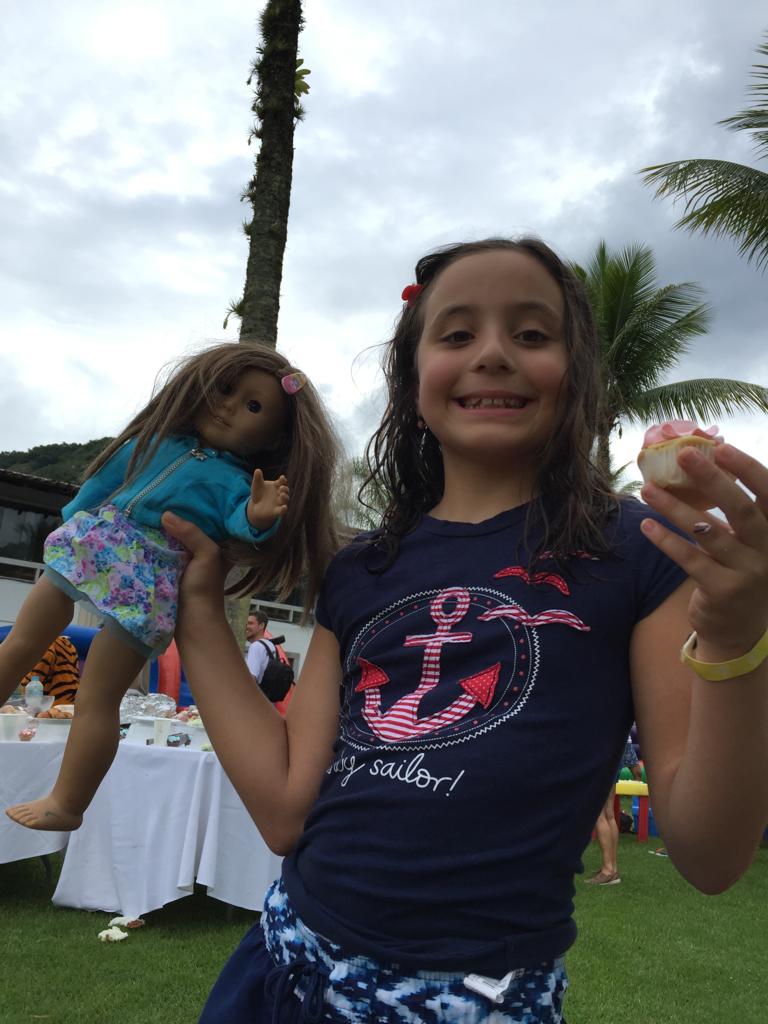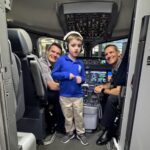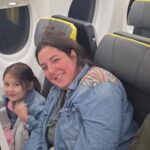
‘She felt safe’: How autism-certified travel options can be life-changing for families
“Every time we were traveling, we were having bad moments – complaints and fights, all kinds of insults that you can’t imagine,” said Flavia Callafange, who is the mother to a 14-year-old daughter named Felicia.
Felicia has autism, and is an extremely friendly and high-energy person. Her mother said she loves talking to people, which can sometimes come across as “aggressive,” and has trouble sitting still during long plane rides. Callafange has learned that there isn’t much she can do to calm Felicia during a meltdown.
“For someone who doesn’t know what autism is and just looks at her, she’s a pretty girl with bad behavior, and I’m a bad mother,” Callafange said. “I heard these insults all the time.”
As Callafange knows firsthand, for families with autistic members, travel can be challenging. “All travel situations, we’ve had problems,” Callafange said.
About 1 in 36 children in the U.S. are on the spectrum, according to the Centers for Disease Control and Prevention. However, only 13% of families with an autistic child go on vacation, according to a 2019 survey. The reason isn’t because they don’t want to travel – 93% of these families do – but they feel there aren’t enough accessible autism-certified travel options.
Everything changed for the Callafange family – which is based in Santiago, Chile – this past summer. In July, Flavia and Felicia Callafange went on Felicia’s dream trip to New York to visit the American Girl Store and see a Broadway show. (Felicia’s doll, Miriel, is “an important instrument for us in the world,” her mother said. Felicia brings the doll everywhere with her as a form of “support” and “protection.”)
For the trip, the Callafanges traveled exclusively with brands that are autism-certified, meaning they know how to specifically accommodate guests such as Felicia – a first for the family.
“We urgently need the world to be prepared on being respectful, empathetic and caring for people with obvious and hidden disabilities,” Callafange added.
Now more than ever, airlines and hotel brands are working toward becoming more inclusive and welcoming to guests with invisible disabilities. The travel industry companies are partnering up with organizations such as Autism Double-Checked to create resources and train staff so families can rest assured they’re being supported in having a successful trip.
“(Traveling with autism presents) so many issues and such a range of the impact of issues,” said Alan Day, Co-founder and CEO of Autism Double-Checked, a travel-focused autism awareness and education organization.
“As an autism parent, you need to be meticulous in planning and have a Plan A, and you got to have a Plan B,” said Day, a longtime travel adviser who started Autism Double-Checked after his own son was diagnosed with autism and the way his family traveled completely changed. No two people with autism will have the same triggers or needs.
“Felicia’s trip is a perfect example of how the travel industry – when equipped with the proper awareness and tools – works together as an ecosystem to support travelers of all backgrounds and abilities,” Day said. “Autism awareness training for the travel industry is a no-brainer; not only does it help to give neurodivergent travelers the important experience of travel, but it also benefits businesses by tapping into a large, growing, and loyal customer base.”
What was it like to travel with autism-certified companies?
The mother and daughter duo flew on LATAM Airlines and wore lanyards from the organization Hidden Disabilities Sunflower, which signify that they have a disability that you may not notice, but they might need extra support. LATAM is one of the few airlines that is Autism Double-Checked, as well as Breeze Airways.
Usually, plane rides are a challenge for Felicia and whoever sits next to her. “She talks like a parrot. She’s very active,” her mother said, adding that her seatmates always complain. The LATAM flight attendants were able to sit Felicia and her mother in their own row near the front of the plane, which Callafange knows isn’t always feasible.
Felicia also gets anxious and antsy when getting off the plane. The flight crew told Felicia she could deboard the plane with business class. “The flight attendants were calming her down, telling her, ‘Don’t worry, you’re going to be the first one,'” Callafange said.
“She felt safe,” her mother said.
HINT. This news segment was broadcast in Spanish. If you want to follow in English, enable closed captions and then use settings to auto-translate into English, or any other language.




